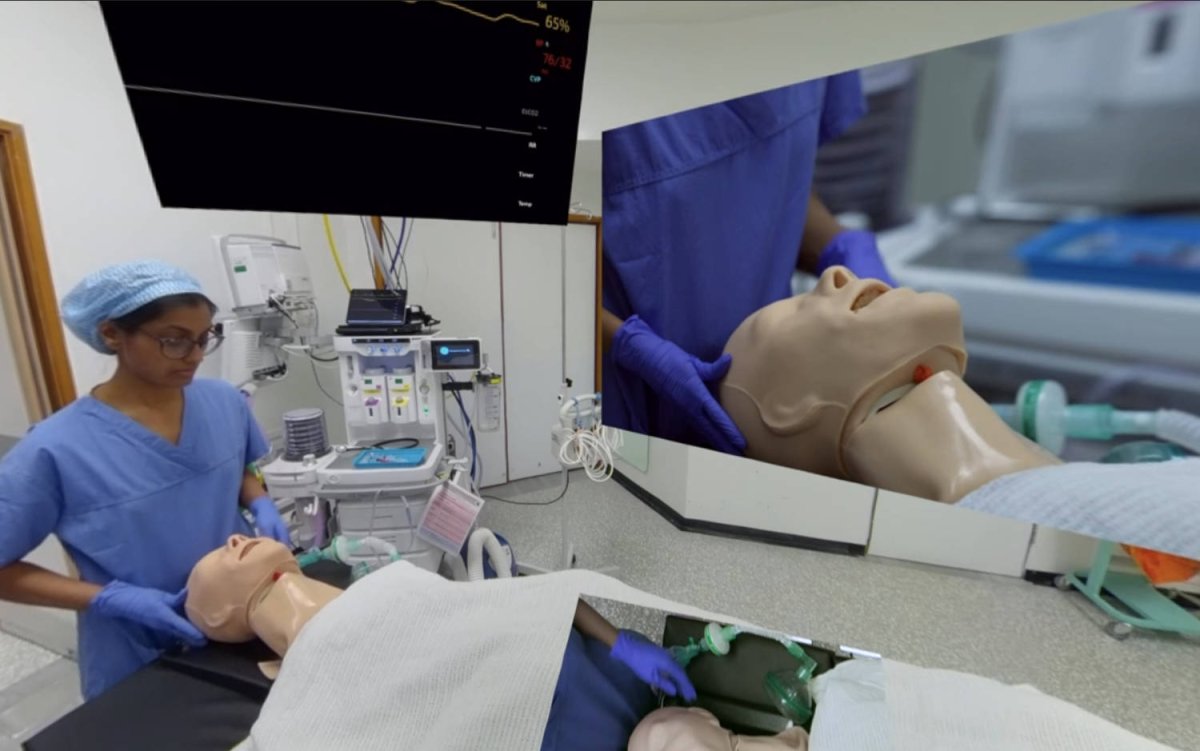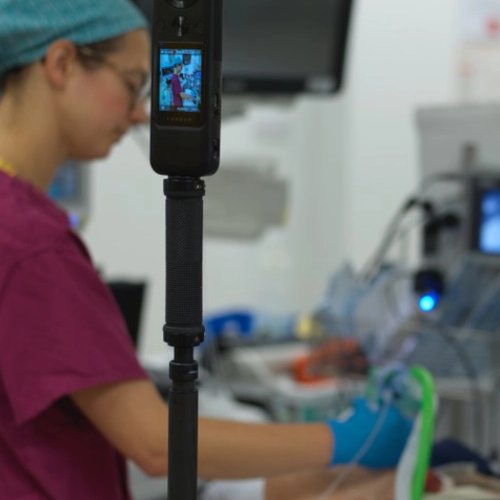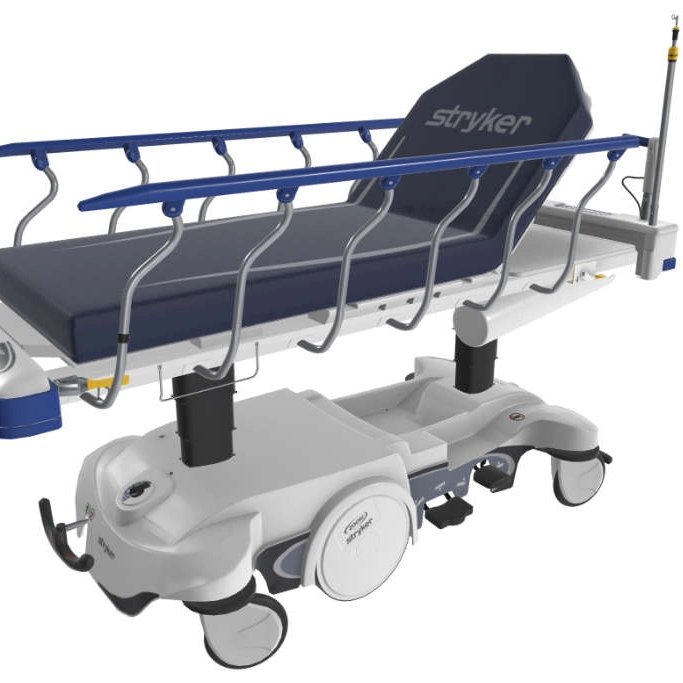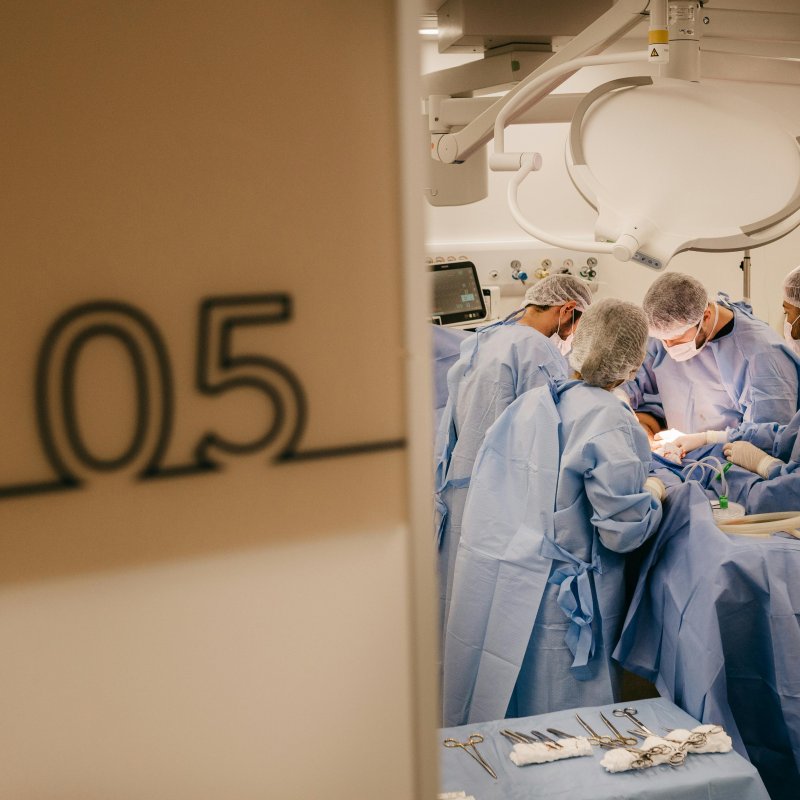Contact Us
+44 20 32897141 / 1 Pickle Mews, London, SW9 0FJ
Transforming a Concept for Medical VR Training into Reality
Published
Sep 12, 2024
Tags
What’s involved with turning a training concept into a medical VR reality? Sit down with two of our founders to understand in full.
To date, users from over 40% of NHS England trusts are using our virtual reality (VR) training platform. This 600k-strong cohort of healthcare and medical professionals can freely access over 100 VR simulations and videos to train for a mix of scenarios, from core ENT procedures to cytology sample taking. And that’s all in just the few years ExR Education has been around.
One of the most common questions we get from our friends in the NHS (and those in Private Healthcare and MedTech) is what’s involved with turning a training concept into a VR reality? In fact, it’s such a popular question that we sat down with a couple of our founders, Jonny and Nick, to explain it in full.
Pinpointing Demand for Virtual Reality Training
First up, we’re not here to making training for training’s sake. Our mission is to make high-quality VR content that adds value to learners – and is accessible to all.
Unsurprisingly, learners and educators see and feel the biggest impact when the training meets a need or fills a gap. For instance, where the ratio of students to teachers is unbalanced. Or, with the introduction of a brand-new medical device – an exciting and daunting process for any MedTech company, and care setting implementing it.
Whilst a range of healthcare professionals and stakeholders approach us with a range of ideas for different VR training concepts, the one element we make sure they have in common is this: a genuine demand for the content. Our VR content creation isn’t necessarily a time-consuming or resource-intensive process. But, with team members experienced working on the frontline of healthcare, we know time is precious. So, we carefully consider and guide you on how your VR concept can make the biggest impact.
Applying VR to Wellbeing Strategies
Take our current research collaboration with the University of Plymouth, the Plymouth Centre for Technology, Cornwall Partnerships NHS Trust, and Livewell Southwest. Did you know that almost half of NHS staff said work-related stress made them feel unwell in 2022? It’s a stark stat, and one that’s prompted us to explore the application of VR to wellbeing strategies for NHS staff with our partners.
The need for alternate strategies to reduce stress is clear. Yet some of the most common barriers to training which provides tangible improvements to wellbeing include time, environment, and accessibility. All three of which can be overcome with our immersive training that be accessed by staff when it suits them. (As long as they have access to a web browser or VR headset.)
To make sure demand for the content is there and it’ll help overcome barriers to training, there are three key questions to ask yourself about your idea for VR medical training:
- What key learning outcomes does the content need to help you achieve?
- How prevalent is the demand for this type of training?
- What would be the implication of carrying on as normal, without the support of VR training asset?’
Jonny, Medical Director at ExR Education
An Injection of Expertise
Once the demand’s been identified, we work with our collaborators to determine which expert(s) should be at the fore of the VR. That’s to produce both videos and full 6DoF (six degrees of freedom) simulations. We also advise on which VR style suits your training scenario, so the end-user gets the most value from the experience. Often, the most educationally valuable option is the unique combination of fully-immersive VR simulation and 360-degree video.
With the experts on board, we build on the demand case. Your expertise of the medical procedure or device the VR will support training with is leveraged to make the filmed scenarios as realistic as possible. We want learners to relate to content and immerse themselves in the training as much as possible to learn and build the technical competencies of the film.
Producing Medical VR Experiences
Onto the film production itself – and over to our MD and 360° Production Specialist, Nick, to walk you through it.
Nailing the filming sessions is essential for producing VR content that users want to watch and learn from.
You’ll hardly notice our lightweight crew who set up within 30 minutes of arriving. Given our experience of recording hundreds of medical procedures or device demonstrations in a range of environments (operating theatres, consultation rooms, air ambulances, you name it), disruption to your team is minimal.
To capture the content, we apply 360° filming with cinema quality videos of any close-up detail using a picture-in-picture overlay which then goes into production, ready to become your extended reality film.

Up to 10 short simulations can be filmed by the ExR team in a single day alone – how's that for time-efficiency in a time-pressed sector?
Distributing and Scaling Medical Training
Once the content’s been reviewed and given the green light, it can be hosted on the ExR platform with immediate effect. (And as soon as a day after the shoot.) To view and/or immerse themselves in the VR training, all users with an NHS login need is access to a web browser or a headset running the ExR app. The ExR app is our freely accessible training platform that can be transformed into a client-controlled white label offering, too.
Given the diversity of the workforce, we built the platform with user ease in mind. It's simple to navigate, with numerous libraries that categorise and order the training to make content easy to find. Word-of-mouth is one of the most effective ways a department, hospital, or Trust can scale its use of its co-created VR content – and reap the rewards.
The Next Era of Training in Healthcare
Immersive medical training has never been more accessible to those in our NHS and wider healthcare organisations. Keep your Trust at the fore of training innovation by reaching out to our team of medical VR specialists today.
Most recent posts
Like what you read?
Please get in touch with us.



